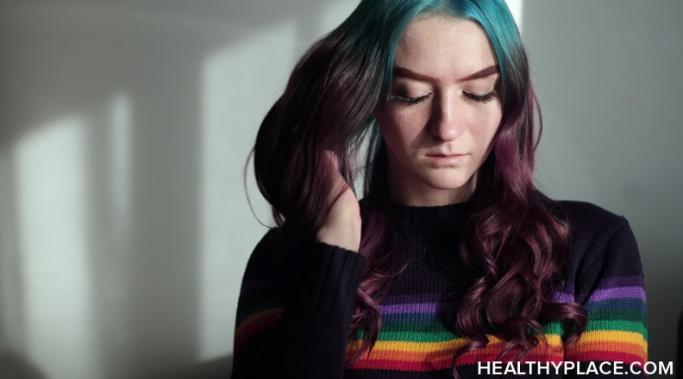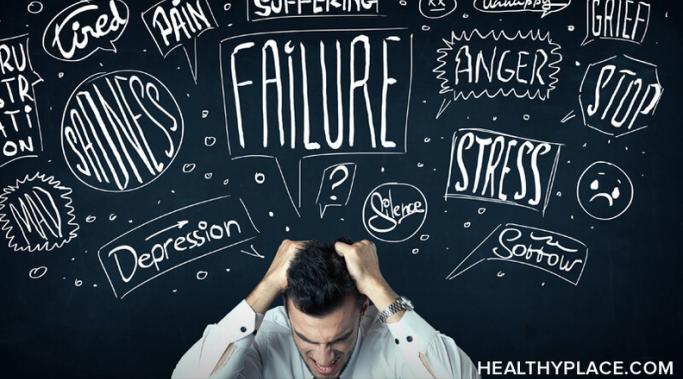Blogs
Defining your role in mental health support can be tricky in a family situation, especially if you have some sort of professional healthcare background. I had recently qualified as an occupational therapist, and when my brother was diagnosed with chronic anxiety and depression, I put a lot of pressure on myself to be more than just a sister because of that. I wish I could take that back.
Dialectical behavior therapy (DBT) is one of the most common treatments for borderline personality disorder (BPD). I experienced a six-month group course of DBT a few years ago and learned many skills that I still use today.
Juliana Sabatello
Let's talk about this scenario: You meet someone new, you're hitting it off, and you think you want to get to know this person better. Your mental illness is a big part of your life, and if they are going to be a part of your life, you know you want them to know about it eventually, but you don't know when or how to bring it up.
After living a year of pandemic life, we are beginning to resume some normalcy just in time for June, Pride Month. Many states have lifted mask mandates while more than half the country has been vaccinated. Entering the month of June, Pride Month in the lesbian, gay, bisexual, transgender, queer, intersex, asexual, etc. (LGBTQIA+) community, after a year of social distancing could put a strain on our mental health. I know I have been experiencing anxiety surrounding the idea of gathering with my LGBTQIA+ community after so long apart. Here are a few ways I have been coping with this new way of life while planning to celebrate pride.
As a victim of verbal abuse, I have found several factors still affect my everyday life, even years after my exposure to any insults and humiliation from someone else. But my perception of others' behavior is sometimes skewed with my history, making it harder to relate to and trust people.
Anxiety has many different treatment approaches, including medication for anxiety. In theory, this is a good thing. It means that you have a lot of different options to choose from for treating anxiety. However, it can also feel overwhelming to be faced with so many choices. Deciding whether to take anxiety medication can also be intimidating. While this post, of course, can't advise you on whether to take medication for anxiety (that's a very personal decision to be made with input from your doctor), it can help you with the decision-making process.
If you've been interacting with doctors as a person with bipolar disorder for more than about a week, you've probably learned the fact that you have to repeat your bipolar story to every doctor under the sun. It's unbelievably frustrating. Mental health professionals treat you like you have never described your bipolar disorder to another person. This is almost never the case. Usually, doctors are asking about your bipolar disorder in front of a huge file outlining your history with bipolar disorder. And repeating your bipolar story over and over is distressing and isn't something we should have to do.
In a recent post, I discussed how anxiety impacts how I experience the passage of time. This is a huge topic to tackle, and so I didn’t even attempt to tackle it all–I focused exclusively on artificially depriving myself of sleep to make time appear to move slower. In this post, I want to focus on other ways time plays into my reactions to anxiety.
A couple of weeks ago, my therapist suggested a change in my medication. I'm currently on my fifth antidepressant in two years. No matter how much a medication seems to work to treat my depression and anxiety symptoms, it seems that there always comes a time when I need to try something else. And at this point, I almost want to give up on antidepressants.
It may seem strange to talk about taking care of our mental health during Pride Month. Pride is a time of joy, fun, and liberation as we celebrate our collective history and identities as queer people. Pride is definitely something I look forward to every year (and I am not above going overboard with rainbow glitter and motifs), but it can also be an emotionally charged time as we confront the ongoing discrimination and systemic oppression that continue to impact our community and daily lives.









